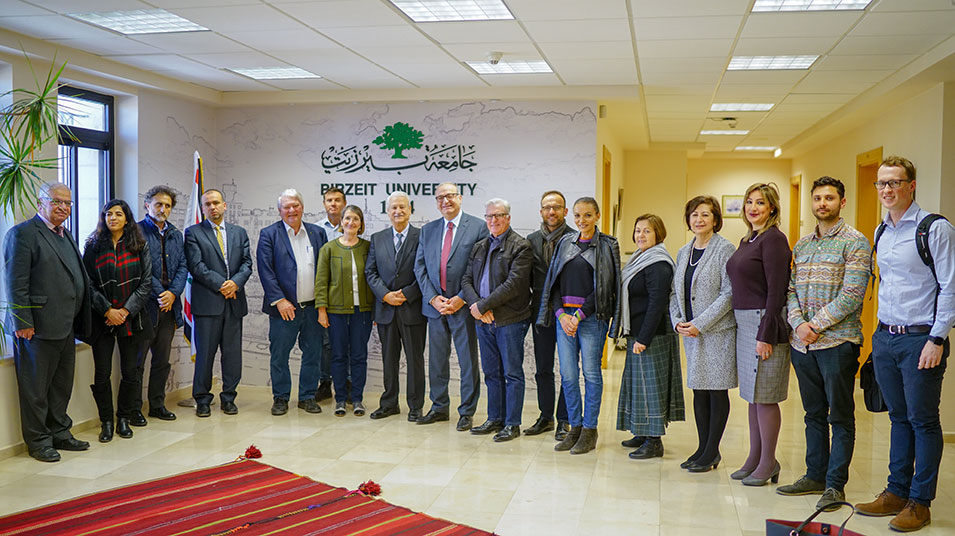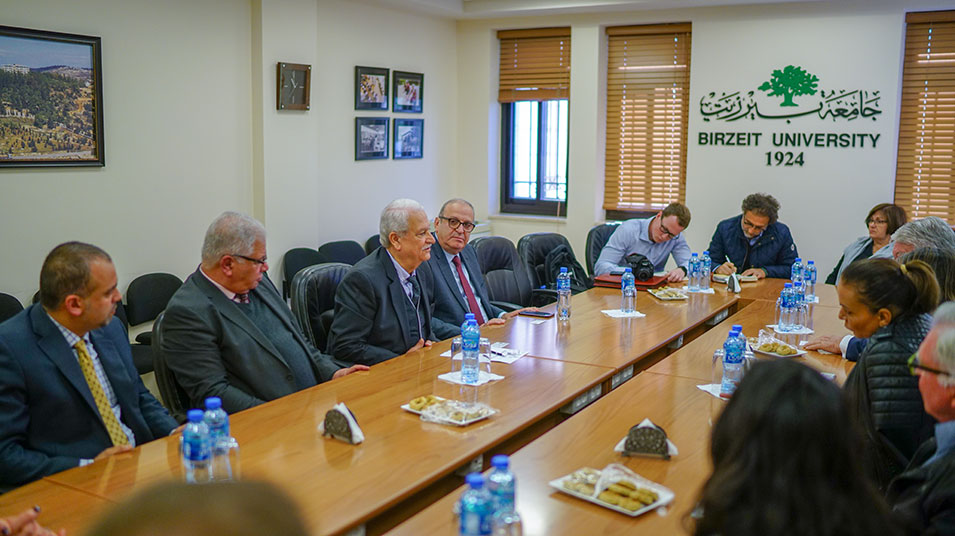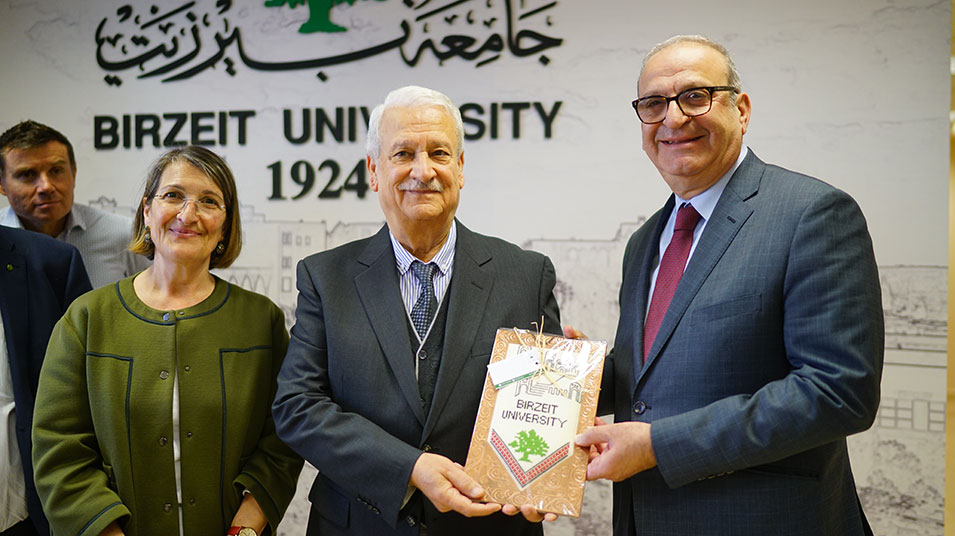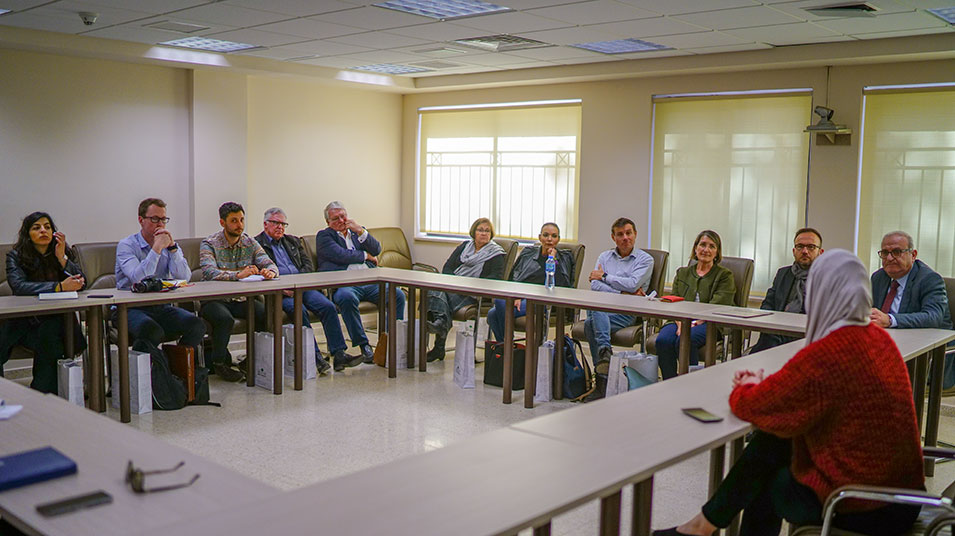Australian parliamentarians visit campus, get acquainted with educational realm under occupation
On January 12, an Australian Parliamentary delegation led by the head of the General Delegation of Palestine to Australia, New Zealand and the Pacific Izzat Abdulhadi, visited Birzeit University, discussed and explored the role of education under the Israeli occupation and the current political situation. The delegation included members from the Australian Labor Party, the Green’s, the Liberal and the National Parties.
The delegation met with the university’s President Abdullatif Abuhijleh, the Assistant to the President Aziz Shawabkeh, and the Vice President for Community Affairs Asim Khalil, and representatives from the Public Relations Office.
Welcoming the guests, Abuhijleh expressed his hope that the visit would be favorable for the strengthening of the university-Australian cooperation. According to the president, the essence of Birzeit University’s development is built upon its openness to the global academic communities and its solid networks with its peers, supporters and friends.
Abuhijleh gave a brief introduction on the history and establishment of Birzeit University, its faculties, and the academic programs it offers. He highlighted the university’s history in facing the occupation, and how it managed to excel despite all the political turbulences, and the Israeli’s systematic measures against the academic sector.
The delegation then met with a number of the university’s staff and faculty members, who examined the Israeli violations of Palestinian rights up close. The Coordinator of the Right to Education Campaign at Birzeit University Sundos Hammad explained the role of higher-education in confronting and resisting the occupation, and its policies and practices that hinder the Palestinian academic institutions from achieving their noble mission.
The Director of the Ibrahim Abu Lughod Institute Lord Habash elaborated on Hammad’s comment, pointing out to the occupation’s systematic policies and practices that are designed to segregate the Palestinian cities and villages through checkpoints, siege and the apartheid wall. These measures, according to Habash, abduct the students’ right of movement and education, and create a fragmented environment turning the Palestinian cities and villages into isolated ghettos.
The parliamentarians took a tour in the university’s campus, getting acquainted with its history and activities.










